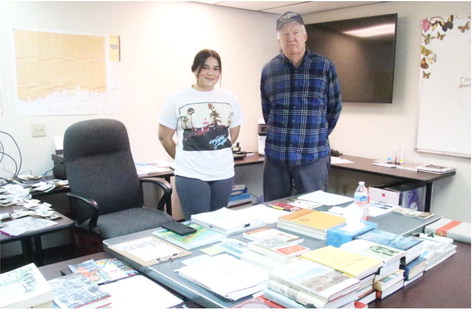How
to
Efforts to educate women about breast cancer have helped raise awareness of the disease and just how treatable it is when detected early. Despite that, a diagnosis can still be difficult for women and their families.
When someone close to you is affected by breast cancer, priorities suddenly change and you may be wondering what you can do to provide the support needed to help this person navigate any ups and downs that could be on the horizon.
A breast cancer diagnosis does not produce a uniform response. While one loved one may embrace others wanting to help, another may feel she is a burden and exhibit an unwillingness to accept help.
In the latter instance, being a supportive bystander may require walking on eggshells. Even still, there are some universal ways to lend support when a friend or a loved one has been diagnosed with cancer.
• Offer practical support. Cancer affects the body in a number of ways. Energy levels may wane and certain symptoms may arise. Side effects from treatments also can make it difficult to continue with daily tasks. So an offer to help with tasks associated with daily living, such as cooking meals, gardening, washing clothes, or cleaning up around the house, can be practical and much appreciated. Approach the individual and ask questions in pointed ways.
Rather than, “What can I do to help?”, which may result in an answer of, “Nothing,” figure out a way to pitch in and then ask if that would be acceptable. This may be, “Would you like me to run to the supermarket for you today?”
• Offer emotional support. Someone with breast cancer may just need a person who can be there and listen. A hug, a nod of understanding or even a companion who can chat and take the person’s mind off the cancer can be immensely helpful.
Keep in mind that emotions may change on a dime, and some emotions may be directed at support systems. While it can feel hurtful, remember the real reason for any outburst is the disease.
Patience is needed at all times.
• Learn what you can about breast cancer.
Research the type of cancer your loved one has, which may make it easier to understand what to expect. If the person is amenable, you may consider accompanying her to appointments to hear firsthand about the next steps in her treatment and recovery.
• Maintain a positive attitude. It’s never easy knowing someone you love is sick. They are going through their own emotional roller coaster, and support systems can lift their spirits by maintaining positive attitudes. Avoid wearing rose-colored glasses, but try to remain as upbeat as possible.
• Find a support group. Professional support groups are great resources for coping with a cancer journey. Supporting a person with cancer takes its own unique toll, particularly when caring for a spouse, child or mother with breast cancer. Support groups for support networks can be helpful.
Individuals diagnosed with breast cancer may need a little extra love and support. It’s up to caregivers and friends to step up and provide what is needed.

